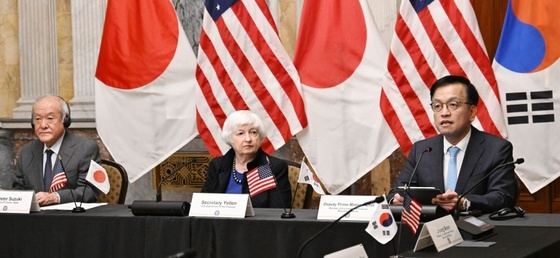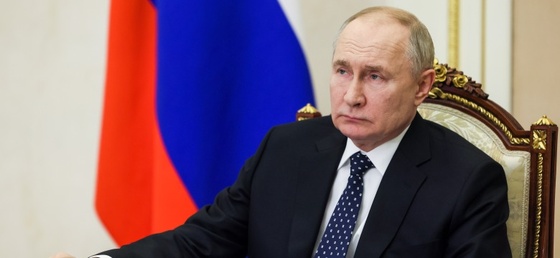[Global View] 브렉시트 영국의 새 포지셔닝 전략
![[Global View] 브렉시트 영국의 새 포지셔닝 전략](https://img.hankyung.com/photo/201607/AA.12022357.1.jpg)
브렉시트가 만들어 낸 경제적 불확실성은 브렉시트 캠페인을 주도한 보리스 존슨 전 런던시장과 마이클 고브 법무장관 간의 이기적이고 정치적인 내부 투쟁 탓에 더 커졌다. 탈퇴파들은 브뤼셀로부터 통제 권한을 다시 가져오기 위해 싸웠다. 그러나 금융시장 주도의 글로벌 경제에서 그런 통제권을 되찾아온 국가는 북한뿐이다. 브렉시트 국민투표 결과에 따라 펼쳐질 미지의 바다를 항해하는 것은 영국에는 버거운 과제다.
신흥국 등급으로 강등될 위기
전례 없는 정치·경제적 위기에 처한 영국은 더 높은 수익률을 찾아 계산적으로 움직이는 글로벌 금융시장에서 상당한 경제 규모를 갖춘 브라질, 터키, 한국과 같은 신흥국 자산군 등급으로 강등당할 상황에 직면하고 있다. 이런 국가의 경제에서는 높은 수준의 국가부채, 무역적자, 부실은행, 정치적 다툼과 같은 거시경제적 취약 요인들 때문에 자주 통화위기를 경험한다. 브렉시트 이후 영국에 이런 모든 요인들이 나타나고 있다.
미국 중앙은행(Fed)이 양적완화 정책의 점진적인 종료를 발표한 2013년 하반기 이후 신흥국 경제와 브릭스(BRICs·브라질, 러시아, 인도, 중국) 경제가 부진한 탓에 글로벌 투자자들은 투기할 만한 새 자산군이 마땅치 않았다. 글로벌 시장에 있는 대규모 자금은 투기 대상이 될 새로운 자산군을 끊임없이 찾거나 만들어 낸다. 과거 엄청난 성장세를 보인 닷컴 회사들, 한국 등 아시아의 호랑이들, 브릭스 등이 그런 투자 대상이었다. 영국이 위에서 언급한 것과 같은 신흥국 경제리그로 격하되지 않으려면 국제 금융시장에서 완전히 새로운 자산군 창설을 주도해야 한다. 영국은 부가적인 이점을 지닌, 뛰어나게 질이 좋은 자산군을 보유하고 있다. 그 이점이란 영국의 경제 규모, 시장친화적인 법적·제도적 전통이 주는 신뢰성, 큰 규모의 안정적인 금융시장 등이다.
영국 자신의 이점 활용해야
2007년 금융위기 이후 미국, 일본, 유로존(유로화 사용 19개국)에서 양적완화 정책을 썼을 때 스위스, 노르웨이, 덴마크, 스웨덴이 그런 투자 대상이 됐다. 하지만 이들 국가 중 어디도 영국이 제공 가능한 시장 규모와 깊이를 제공할 수 없었다. 그런 점에서 영국은 힘들이지 않고 이런 작은 북유럽 국가에 합류해 새로운 자산군을 만들 수 있을 것이다. 프랑스와 네덜란드의 차기 선거에서 탈(脫)EU 바람이 불어 새 자산군에 대한 추진력을 제공할 수도 있다. ‘색슨-바이킹(혹은 바이킹-색슨) 경제’의 새로운 자산군으로 합류한 것을 환영한다!
금융시장 주도 세계 경제에서 영국(혹은 스코틀랜드를 제외한 영국)을 새 자산군으로 자리매김하는 일은 런던 정치 지도자들이 대부분의 임기 동안 매달려야 할 일이 될 것이다. 영국 중앙은행(BOE)은 세계에서 가장 바쁜 기관이 돼 격랑의 금융시장에서 ‘영국호(號)’가 쓰러지지 않도록 노력하게 될 것이다.
이스마일 에르튀르크 < 영국 맨체스터대 비즈니스스쿨 교수 >
한국경제신문은 영국 맨체스터대 비즈니스스쿨 교수진의 기고문을 한 달에 1회 독점 게재합니다.
After Brexit- U.K.'s uncertain future as a new asset class for international investors
Ismail Ertürk, The University of Manchester
The immediate verdict of financial markets on the U.K.'s referendum result to leave the E.U. was damning: sterling fell sharply, investors fled some real estate funds threatening their solvency, U.K. banks lost significant value in stock market and the U.K. government lost its AAA rating in bond markets. The economic uncertainty that Brexit has created was magnified by the political risk that the leaders of the Brexit campaign, Boris Johnson and Michael Gove, have amateurishly created by entering into a selfish political infighting that revealed a lack of a vision and plan by the Brexit leaders for the U.K. outside the E.U.
Boris Johnson panicked in the face of unexpected success of the leave campaign that he had led and immediately announced in a newspaper article that Brexit did not mean cutting all ties with the E.U. economically and politically. Michael Gove, then, betrayed Johnson, to whom he originally had sworn allegiance to, by accusing him for not possessing the leadership qualities to lead the Conservative Party and the U.K. for a future outside the E.U. The leader of the opposition, Jeremy Corbyn, too, came under severe attack from the majority of his own shadow cabinet and the parliamentary Labour Party who publicly voiced their distrust of Corbyn's leadership qualities. On top of this English drama a probable Scottish tragedy in the form of a second Scottish referendum to leave the U.K. was conjectured by Nicola Sturgeon, the Scottish First Minister. Of course the U.K. has historically strong political institutions, traditions and elites that are collectively driven by common sense to avoid political drama and to aim normality in domestic and international affairs. But nevertheless the current formidable challenge to navigate the unchartered waters of the referendum result in the short and long-term is enormous and has thrown the U.K. into turbulence.
Against such background of unprecedented economic and political risks the U.K. faces relegation, in unforgiving and yield searching world of global financial calculations, to the asset class league of sizeable emerging economies joining the likes of Brazil, Turkey, South Korea. Such economies regularly experience runs on their currencies due to a mixture of macroeconomic fragilities like high levels of sovereign debt, high current account deficit, weak undercapitalised banks and political infighting. The post-Brexit U.K. exhibits and will continue to exhibit in the near- to mid-term future all of these weaknesses. And there will be new problems. For example there are already anecdotal evidences of food processing and fruit farming suffering from labour shortages due to East European immigrants going back to their home countries. The French Prime Minister has already publicly announced tax breaks and other relevant support to lure bankers from London to Paris. Building a solid post-Brexit economic future for a U.K. outside the E.U. on the weak foundations of structural economic problems and the new political uncertainties is going to be extremely difficult.
Boris Johnson realised this in full horror and therefore he sheepishly ran for cover against Gove's meek betrayal. Sterling, U.K. stocks and bonds, real estate will combine to make the U.K. an excellent asset class for international investors especially the hedge funds who thrive on volatility. Since the demise of the BRICs and emerging economies stories since the second part of 2013 when the U.S. Federal Reserve announced tapering of quantitative easing international financial investors were short of new asset classes to speculate on. In our financialised capitalism the wall of money in international markets continuously search for and create new asset classes to speculate on. In the past we have seen the dot.com companies, Asian Tigers, BRICs, etc. playing such role. An alternative to the U.K. being relegated to the emerging economy league mentioned above is the U.K. initiating the creation of a brand new asset class in international finance.
The U.K. has the excellent qualities of a country asset class with added advantages. Added advantages are the size of its economy, reliability of its market friendly legal and institutional traditions and deep financial markets. Switzerland, Norway, Denmark and Sweden individually and collectively have played such role under the quantitative easing polices of the U.S., Japan and the Eurozone since the 2007 financial crisis. But none of these countries could offer the size and depth that the U.K. can offer. In that sense the U.K. can easily join these smaller Nordic European countries to form a new asset class. And it will not be surprising to see the oncoming elections in countries like France and Holland providing a momentum to this new asset class with speculators betting on the financial consequences of Frenchxit and Dutchxit. Welcome to the new asset class of Saxon-Viking economies© or Viking-Saxon economies©.
The leave campaigners were fighting to take back control from Brussels. In a financialised global economy the only country in the world which takes back control is North Korea. The leaders of the Brexit campaign are already realising the impossibility of having full control over economic and international affairs. The governor of the Bank of England, Mark Carney, has announced in the aftermath of the Brexit that the anticipated financial risks are crystallising. There is going to be much more than negotiating the new trade relations with the E.U. on the plate of the new prime minister of the U.K. Trying to manage the U.K.'s or the U.K. minus Scotland's future as a new asset class in a financialised world economy is very likely to occupy most of post-Brexit political leaders’ time in London. And the technocratic Bank of England is very likely to be the busiest and increasingly more powerful institution in the post-Brexit world trying to keep the U.K. float in turbulent financial markets.
정리=박진우 기자 jwp@hankyung.com
-
기사 스크랩
-
공유
-
프린트
![[속보] "이스라엘 미사일, 이란 내 장소 타격" 美 ABC방송](https://img.hankyung.com/photo/202404/02.22579247.3.jpg)

![예금 금리 20배나 올렸는데…日, '예상 밖' 상황에 당혹 [김일규의 재팬워치]](https://img.hankyung.com/photo/202404/01.36468085.3.jpg)


![넷플릭스, 가입자 순증 꺾였다…악재 쏟아진 기술주 [글로벌마켓 A/S]](https://timg.hankyung.com/t/560x0/photo/202404/B20240419072033320.jpg)








